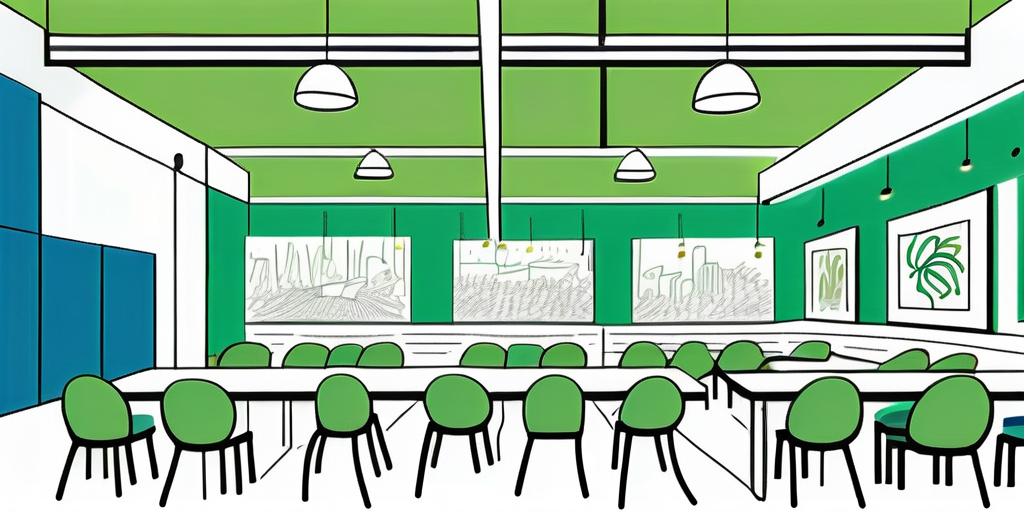
In an increasingly digital world, where physical interactions can sometimes feel limited, Clubhouse events provide a refreshing avenue for community engagement and connection. These events serve a vital role in fostering a sense of belonging among participants, creating a space where individuals can come together, share experiences, and form lasting relationships.
Clubhouse events are gatherings, both virtual and in-person, that bring people together under a common theme or interest. They can range from informal meet-ups to structured discussions and workshops, all designed to encourage participation and interaction.

At their core, Clubhouse events are defined by their focus on community interaction. Participants engage in activities that resonate with their interests, whether it's art, technology, health, or any other field. These events are typically inclusive, welcoming individuals from various backgrounds and demographics, thereby enriching the experience for everyone involved. This inclusivity not only fosters a sense of belonging but also sparks diverse conversations, allowing attendees to share unique perspectives and insights that they might not encounter in more homogeneous settings. The result is a vibrant tapestry of ideas and experiences that can inspire creativity and collaboration.
One of the standout features of Clubhouse events is their adaptability. They can take place in various formats, including webinars, panel discussions, or casual social hours. This versatility allows organizers to cater to different preferences and needs, ensuring that each event feels relevant and engaging. Additionally, the interactive nature of these events enables attendees to not only listen but also participate actively, fostering deeper connections. For instance, breakout sessions can be employed to encourage smaller group discussions, where participants can delve into specific topics more intimately, thus enhancing the overall learning experience. Furthermore, the use of technology in virtual Clubhouse events allows for creative engagement tools, such as live polls or Q&A sessions, which can elevate the level of interaction and keep the audience invested throughout the event.
The feeling of belonging is essential for emotional and psychological well-being. It shapes how individuals perceive themselves within their communities and significantly affects their overall happiness and mental health.

Belonging contributes to a positive self-image and high self-esteem. When individuals feel accepted and valued by others, they are more likely to express themselves freely and pursue their interests confidently. This safe environment promotes mental health, alleviating feelings of loneliness and anxiety. Furthermore, research indicates that those who experience a strong sense of belonging often exhibit greater resilience in the face of adversity. They are better equipped to handle stress and recover from setbacks, as the emotional support from their community acts as a buffer against life's challenges. This interconnectedness not only fosters personal growth but also encourages individuals to seek help when needed, knowing they are part of a supportive network.
Beyond individual benefits, a sense of belonging vastly impacts social dynamics. Communities that foster inclusion and connection tend to be more supportive and resilient. Individuals who belong are more likely to contribute positively to their communities, whether through volunteering, mentoring, or simply offering companionship to others. This collective engagement enhances social cohesion, as members feel a shared responsibility for one another's well-being. Additionally, when people feel they belong, they are more inclined to participate in civic activities, such as voting or community organizing, which can lead to more effective governance and improved public services. The ripple effect of belonging extends beyond immediate relationships, influencing societal norms and values, and fostering a culture of empathy and cooperation.
Clubhouse events play a pivotal role in nurturing this sense of belonging by providing platforms for interaction, communication, and shared experience. Through curated activities and purposeful engagement, these events bring people together in meaningful ways. The atmosphere at these gatherings is often charged with enthusiasm and curiosity, as attendees are eager to learn from one another and share their unique insights. This collective energy not only enhances individual experiences but also strengthens the community as a whole, making each event a memorable occasion.
Shared interests form the foundation of many Clubhouse events. Whether participants are passionate about photography, coding, wellness, or any other topic, having common ground allows connections to flourish. Events often include activities that promote engagement, such as collaborative projects or discussions, which help solidify these bonds. For instance, a photography workshop might not only teach technical skills but also encourage participants to share their personal stories behind their favorite images, creating deeper emotional connections. This blend of learning and storytelling fosters a rich environment where attendees feel valued and understood.
Building connections is another significant aspect of Clubhouse events. Organizers often facilitate networking opportunities, where individuals can meet others who share their passions. This environment encourages the exchange of ideas, experiences, and perspectives, creating a vibrant community atmosphere. Additionally, many events feature breakout sessions that allow smaller groups to dive deeper into specific topics, ensuring that everyone has a chance to contribute and be heard. These intimate settings often lead to lasting friendships and collaborations, as participants discover shared goals and aspirations that extend beyond the event itself. The friendships formed in these spaces often evolve into support networks, where members encourage each other in their personal and professional journeys.
The future of Clubhouse events looks promising as they evolve to meet the changing needs of communities. As more individuals seek connection and belonging, these gatherings will likely play an even larger role in social fabric.

Future developments may include enhanced technological integration, such as virtual reality experiences to make digital events more immersive. Additionally, hybrid models of events—combining in-person and online elements—could open doors for even broader participation and inclusion. Imagine attending a live concert where some fans are physically present while others join from around the world, all experiencing the same energy and excitement in real-time. This blending of formats not only caters to diverse preferences but also allows for a richer exchange of ideas and experiences, as participants from different backgrounds come together in a shared space.
As Clubhouse events continue to grow and adapt, their long-term impact on community engagement will be significant. They are likely to foster deeper relationships and create lasting networks of support. Such connections can lead to collaborative initiatives that benefit entire communities, thereby reinforcing the importance of belonging in our lives. Furthermore, these events can serve as platforms for underrepresented voices, allowing individuals to share their stories and perspectives. By amplifying diverse narratives, Clubhouse events can help cultivate empathy and understanding among participants, ultimately enriching the community experience.
Moreover, as these gatherings become more commonplace, they may also inspire local leaders and organizations to embrace similar models of engagement. Community workshops, panel discussions, and networking events could evolve to incorporate the interactive elements that make Clubhouse events so appealing. This shift could lead to a more vibrant civic life, where individuals are not only consumers of content but active participants in shaping their communities. The ripple effect of such engagement could be profound, as empowered citizens come together to address local issues and drive positive change.